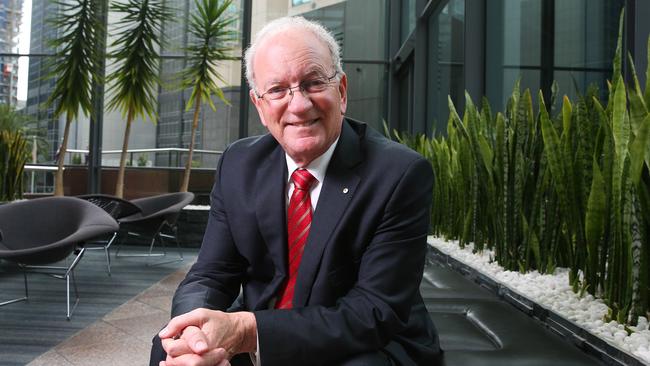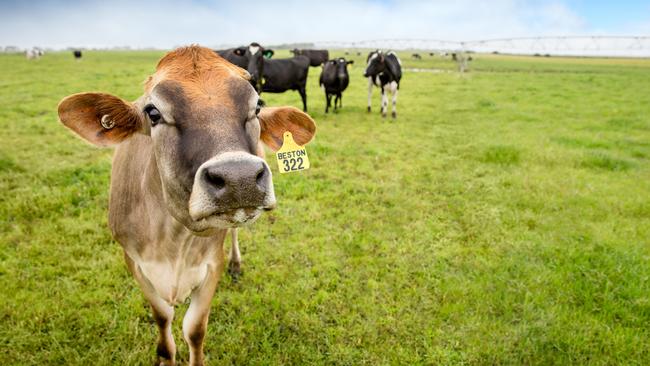Beston Global Food Co is asking shareholders not to spill the board
Beston Global Food Company has orchestrated a fix to its short term debt and capex needs, but the board could face a tricky annual meeting later this month.

Beston Global Food Company chairman Roger Sexton has taken the unusual decision to plead with shareholders not to spill the board a full two weeks before the embattled company’s annual meeting, arguing its long-hoped for, yet elusive goal of profitability is just around the corner.
Meanwhile the share register of the company, which produces about $140m of dairy and cheese products annually, albeit not yet profitably, faces a looming shake-up, with Regal Funds Management and Allianz primed to take up dominant positions — but perhaps too late to avoid yet another strike against the company’s board.
Facing down a protest vote against the company’s remuneration report is not unfamiliar territory for the chairman, with Beston notching up a second strike at a delayed 2020 annual meeting early last year, after a massive 64.9 per cent vote against its remuneration report in 2019.
Indeed you have to go back to 2018 to find a remuneration report which did not attract a protest vote from the company’s long-suffering shareholders, with last year’s remuneration report, at a meeting held in November, copping a 50.84 per cent vote against.
This was also accompanied by significant votes against the re-election of the company directors up for re-election at that meeting, with Dr Sexton himself only polling 54.6 per cent support.

And the coming vote falls just before a major realignment in the balance of power among the company’s major shareholders, with a massive — by Beston standards — $28.2m capital raise, which will bring almost a billion new shares onto the register, finalising five days after the crucial meeting.
That share issue will likely hand Regal Funds Management and Allianz large chunks of the company, but too late for the new shares to count in any boardroom power play.
To put the significance of the capital raise in context, Beston’s current market capitalisation is just $25.9m, with its shares languishing at 2.6c, just above the 2.5c issue price.
This is marginally above record lows for the stock, and well down on the 35c issue price the company listed at in August 2015 after raising $100m.
Beston, which listed with a goal to aggregate stakes in Australian food producers and take advantage of the opportunity to feed into largely the domestic and Asian food markets, has grown its revenues solidly in recent years.
But while revenues have increased from $85.2m in FY19 to almost $140m last financial year, profits have not followed.
The company made a $21.7m loss last year, and is yet to make a profit since listing.
Beston is deeply indebted to National Australian Bank, and the delicacy of that relationship is indicated by where the proceeds of the current capital raise will go.
A letter lodged with the ASX this week says that when it came time to roll over the company’s debt facilities, which were up for renewal on August 31, the new deal came with the proviso that Beston pay $16m back by the end of the calendar year.
So it came to pass that the company announced it would raise the $28.2m at just 2.5c per share — a 59.6 per cent discount to the company’s average trading price over the previous 10 days — and a partial solution for the company’s debt woes was found.
The lion’s share of the capital raise — $16m — will go towards paying back the NAB, and reduce Beston’s debt burden from $48m to $32m..
Another $3m will go towards boosting the company’s lactoferrin production, while $7.5m will be set aside for projects identified as low risk, high return capital investment initiatives.
But while the $3.3m worth of shares issued under the institutional placement included in the offer were scheduled to be quoted on the ASX in late October and will hence have voting rights at the AGM, according to the documents lodged with the ASX — and verified by Dr Sexton — the much larger number of shares under the $25m entitlement offer will be issued a few days after the meeting and hence will play no part in the vote.
The Beston share register has been dominated to date by major shareholdings owned by Chinese investors Australia Aulong Auniu Wang Food Holdings and Kunteng: shareholders who have been vocal in their displeasure with the way the company has been run, and who have made their own plays for board seats.
Kunteng went so far as to take Beston to the Takeovers Panel in 2021, in a bid to have a capital raising blocked, while Beston has criticised both investors — who came on board back in 2015 — for failing to follow through with agreements to purchase goods from the company.
But a new force appears primed to emerge on the Beston register.
Regal Funds Management, which is already a significant holder with just less than 6 per cent of the company, has committed to taking up $15m worth of the new share offer, should there be a shortfall, while Allianz Global Investors Asia Pacific will also take up about 106 million shares.
Regal has agreed to offload any shares which might push it over the 20 per cent stake which would necessitate a takeover bid, and Allianz has also committed to not going above 9.5 per cent of the company post-raise.
Regal would not comment on the rationale behind it effectively underwriting the new share issue when contacted this week.
But crucially for the company’s board, most of the new shares issued won’t get a vote at this year’s AGM on November 25.
In this context, Dr Sexton and the Beston board this week lodged two letters with the ASX, one explaining the rationale behind the raise, and another urging shareholders to support the remuneration report vote.
“A small group of disruptive investors have brought about the possibility of having to proceed with the contingent spill resolution by getting a ‘first strike’ resolution passed … as they did also several years previously,’’ Dr Sexton writes.
“Our past experience in dealing with these intimidatory actions by a small group of shareholders against the remuneration report (which actually bear no relevance to the content of the remuneration report) has been that the actions were being used for the purpose of malintent against the company.’’
Dr Sexton says if the previous spill vote at the 2020 AGM were successful, the shareholders would have “potentially been able to take control of Beston without paying for it’’.
“These circumstances cannot be allowed to play out,’’ he writes.
Dr Sexton goes on to say that a successful spill motion, which would necessitate the holding of another meeting within 90 days, would involve considerable financial cost to the company, at a time when it was poised to generate positive EBITDA of $8m-$10m on revenues of $150-$180m.
“The goal is now well in sight,’’ Dr Sexton writes.
“Like all shareholders, we have been disappointed by the past financial performance of the company, as a result of having to deal with a host of different unanticipated challenges as a young, start-up company.
“That said, we hope that you will recognise, and take into account, all the hard work which has been done by the board and management to navigate the company through these challenges … and to build the asset base of the company to provide for sustainable, long-term earnings growth.’’




To join the conversation, please log in. Don't have an account? Register
Join the conversation, you are commenting as Logout